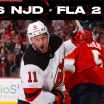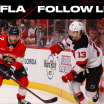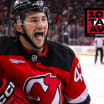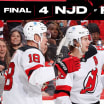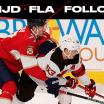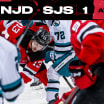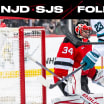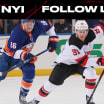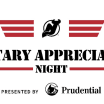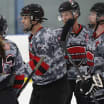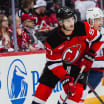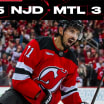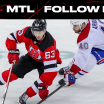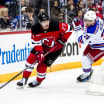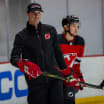Devils and Rangers.
Those guys didn't like each other; and the mutual animosity went back a long, long way.
Guess what?
They're still not crazy about each other; nor do their fans do cartwheels of joy when it comes to their respective rivals.
That, too, may be the understatement of the half-century.
In fact the New Jersey Devils didn't like the New York Rangers before they ever met them. And for good reason.
"For the Rangers to let us play in their 'territory,' I had to shell out a whole lot of dough," said Devils owner Dr. John McMullen about moving his team from Denver to the Meadowlands Arena.
Then, a snort of unpleasantness. "They called it 'indemnification.'"
"I was doing the NHL a favor, moving a team out of Colorado and starting a terrific rivalry in the Met Area. They should have been paying me!"
But Mac knew the intricacies of major league sports and he was quite happy to become owner of the first major league team in The Garden State.
"I was born, bred and ran my business in New Jersey," McMullen explained. "I love the state and was happy and proud to have an NHL team. I looked forward to us beating the pants off the Rangers."
SUNDAYS WITH STAN: The Rivalry
It is Hudson River Rivalry Week presented by MSG, and so Stan Fischler gives us his thoughts on the Devils history against the Rangers in his Sundays with Stan column
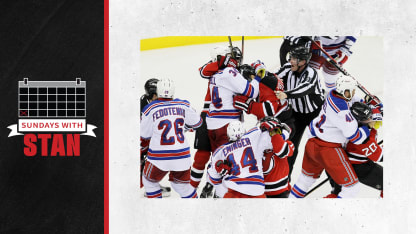
More easily said than done. The Broadway Blueshirts had been around for a while; since 1926 to be exact. Their fan base was as devoted as any in the sports world.
The late Ira Gitler, co-author of the definitive history, Hockey -- The Story of the World's Fastest Sport, remembered when the Devils moved into East Rutherford.
"As a Rangers fan," Gitler once recalled, "I welcomed the Devils. They were the new kids on the block and we figured the Blueshirts could get a 'free' two points from them; at least for a few seasons."
When the Devils made their debut, in1982-83, there now were three Met Area teams; the then trifecta champion New York Islanders being the third.
"We more admired than hated the Islanders," said original Devils fan Noam Kogen, a Manhattan tax accountant. "When it came to the Rangers, it was hate from the get-go."
Dr. McMullen symbolized the anti-Rangers feeling and made absolutely no bones about it whether it was to his close friends or to employees such as the team's radio play-by-play man, Larry Hirsch.
"Mac hated the Rangers," Hirsch remembered. "He wanted nothing to do with his Rangers and he wanted his team to win. He said to me, 'If you mention the Rangers, you're fired.'
"In New Jersey he wanted to create his own thing. And he told me, 'Larry, I don't want to hear anything about the Rangers on your broadcasts.' And I said, 'Yes, sir.'"
Like McMullen and any original Devils season ticket-holder, Hirsch wanted the Devils to win. But as one brought up on Rangers hockey, he almost suffered a fatal slip of the tongue that nearly cost him his job.
In Matthew Blittner's oral history -- "Unforgettable NJ Devils" -- Hirsch recalled how close he came to blowing a line; and his gig.
Hirsch: "I was afraid I might throw to commercial and mistakenly say, 'You're listening to New York Rangers hockey.' Sure enough, I'm doing this game and at the beginning of the commercial break, I said:
"'We'll be back, Devils lead, 1-0, and you're listening to New York...'. And I caught myself. We went to commercial and when we came back, I said to myself, 'I'm never going to do that again.' And I'd bang out the Jersey part."
Arithmetically speaking, Hirsch had little to crow about. The team finished in the NHL's subterranean depths yet there were sweet uses to the adversity. And some surprising ones as well.
Arguably the biggest surprise came at the very beginning, October 8, 1982. It was opening night and the big barn now was called Brendan Byrne Arena filled with 19,040 seats.
And who should be the honored guests but the hotsy-totsy Rangers. Lo and behold, the Devils beat them 3-2 and the rivalry was off and running.
"We didn't have a very good team," said New York Post hockey columnist Larry Brooks who then ran public relations for the Devils, "but i'll always remember that first game at home against the Rangers and beat them."
Still, it took quite some time for the Devils to build a fan base. McMullen originally had figured that every Rangers fan who lived in New Jersey would switch his and her allegiance to the Devils.
McMullen: "I was sadly mistaken. What I later came to believe is that Rangers fans, wherever they live, pass along their rooting interest to their kids. I learned that it was a genetic thing."
As a result, Devils fans would gnash their teeth when the Blueshirts would visit because almost half the spectators rooted for the Rangers.
Devils forward Corey Miller told "Battle On The Hudson" author Tim Sullivan how frustrating it was to come back from a road trip, win a few games and then play the Rangers.
"We'd look around," sighed Millen "hear all those Rangers fans and we'd be thinking, 'Are you serious? This is like a road game."
The first year losses notwithstanding, Devils fans found reasons to rejoice.
For one, they found an idol so infectious there was nobody like him on the Rangers. His name was Glenn (Chico) Resch and he played goal.
Resch: "I learned how to dislike the Rangers playing over six years for the Islanders. No matter how good we'd play -- even winning The Cup in 1980, they'd get the big play because they were the big-shots from The City."
It didn't help matters for McMullen, Inc. that, for season after season, Doc Mac's club missed the playoffs. Coaching changes didn't help although for a time it appeared tha Doug Carpenter behind the bench had the answer.
But a new man was moving in to the high command and he would eventually decide Carpenter's fate and that of the team as well for years to come.
By the 1987-88 season Lou Lamoriello had moved in as the Devils new boss and he was hopeful that Carpenter finally could steer New Jersey to its first post-season tournament.
But in an almost cruel way, the hated Rangers intervened and cost red-headed Doug his job. Ironically, it later would cost the Blueshirts a playoff berth.
By early December 1987 all signs suggested that Lamoriello had provided the best team Doug had coached since arriving in New Jersey but the days before Christmas would be pivotal to the club's success
Still in the way -- like a perpetual barricade -- were the Lords of Seventh Avenue and on December 16th, 1987 they would host the Devils once more.
"This is the litmus test for Carpenter," said one of the SportsChannel tv tech guys as the Devils crew prepared its production meeting. "He's got to win this one."
It wasn't even close. The Rangers jumped all over Carpenter's crew right from the opening face-off and never relaxed. The final score, 9-3, for New York was indicative of the competition and left Carpenter without excuses.
"We stunk," he concluded. "It has to be turned around."
Too late, Doug. Lou had seen enough and now he had to find a replacement coach. It took more than a month and, finally, on January 26,1988 Jim Schoenfeld was introduced as the new head coach.
The results were encouraging. As the weeks of winter led to spring, Schoenfeld's spirited leadership spurred the Devils closer and closer to the Rangers and possibly New Jersey's first playoff berth.
Finally,when they met at the Meadowlands the game felt like a playoff encounter and the Devils could sniff a post-season run. Less than two minutes into the first period, Jersey center Kirk Muller scored.
From that point until the finish the Devils were relentless and mean.
Small but gritty forward Pat Verbeek took on Rangers defenseman and gave the gifted Blueshirt a licking. When Pat Conacher ended the scoring in the third period the score was 7-2 for The Home Club.
That victory catapulted them to a homestretch run that concluded on the final night when John MacLean's overtime score in Chicago thrust New Jersey into the playoff for the first time.
By the dint of the victory, there was double-dip satisfaction for the Garden Staters. The Devils were in and -- the Rangers were out!
On a comparative level, this was a colossal turning point in the cross-river rivalry. John Dellapina, currently an NHL v.p. public relations, comprehended the importance to the Jersey Boys.
"If you were a Devil," Dellapina explained, "you were measured against the Rangers. Everything was measured against the Rangers. Your attendance was measured against the Rangers. Your television. Newspaper coverage.
"This was the order of things. The Rangers were the big boys from Broadway. The Devils were the guys from the suburbs and had to get over that hump. That was always there."
At last the Devils successfully had climbed one mountain but there remained a lot more peaks with the Rangers creating obstacles.
Author of "Unforgettable Devils," Matthew Blittner has covered all Met Area sports. His view, along with so many others, is that there's a special electricity generated when the teams meet.
Blittner: "Whenever the Devils crossed the Hudson to play the Rangers -- or vice versa -- they were blood rivals. You could be damn sure that the fan in attendance would be treated to an experience they'd never forget."
The experiences varied with the seasons. For New Jersey the 1988 run merely was the prelude to bigger and better conquests. In the spring of 1994 the rivals collided in a classic tournament; one of the best ever.
It went down to a seventh game at Madison Square Garden and then double overtime before Stephane Matteau stuffed the puck on the short side past Martin Brodeur.
Author Tim Sullivan called it "The NHL's Greatest Series Ever" and then wrote a book about the rivalry called "Battle Of The Hudson."
For the Devils it was a crushing end to the season. Both Dr. McMullen and Lou Lamoriello went from player to player in the aftermath, congratulating each one for a valiant effort.
McMullen, who continued to loath the Rangers with a passion, put a coda on the climax: "I know I'm never going to die of a broken heart or a bad stomach because if that were the case, it would have happened already."
Looking to the 1994-95 season, Lou chirped, "The best is yet to come."
How could he have known? Well, obviously nobody could precisely predict the future but, as it happened, Lamoriello had it right.
"You never know what's going to happen with teams," said Brian Leetch "but we on the Rangers knew that the Devils weren't going anywhere. They didn't sit around after that loss to us. They got right back up."
Not only that but they marched all the way to their first Stanley Cup, wresting the silverware from the Rangers who were knocked out of the playoffs before the Devils could get their hands and sticks on them.
New Jersey would continue to dominate, winning championships in 2000 against Dallas and 2003 vs. Anaheim. Even Rangers icons had to step back and applaud.
"The Devils truly kept it going," said Leetch, "and we (Rangers) didn't. I give them credit. They kept it together and we couldn't."
Various theories have been advanced in terms of futures. Author Tim Sullivan wrote in "Battle On The Hudson," a possible scenario had the Devils gone on to with the 1994 Cup and not the Rangers
Sullivan: "You can make a case that if the Rangers had lost Game Seven and the Devils went on to win The Cup, they may never have gotten there again.
"To beat their biggest rival in the NHL's greatest series ever and to win The Cup, perhaps their course would have followed New York's. After losing to the Rangers they were hungry. They were determined and driven."
Mister Devil, Ken Daneyko, agreed with Sullivan that the seven-game clash was "The Greatest Series" but Lamoriello wouldn't go that far,
"It was great," Lou agreed, "but it wasn't the greatest series ever -- only because we didn't win."
By the summer of 2003, Lamoriello had three "greatest" series to choose from; The Cup-winner in 1995, another in 2000 and, finally, 2003 But nine years later, there would be more New Jersey-New York hockey eruptions.
Following the 2011-12 seson the Rangers and Devils fought their way through two grueling rounds and now were speeding head-on in yet another best-of-seven series.
What made this one so special was the contrasting-coaches sideshow -- John (The Mouth) Tortorella on the New York side and Peter (The Lawyer) DeBoer for New Jersey.
"It got very heated between them," recalled Devils radio analyst Chico Resch. "It was a good thing that a barrier separated the two benches."
The intensity reached a super-fever pitch with the Devils leading the series three games to two and Game Six at Prudential Center.
I had the good fortune to watch the game with Chico at ice level and I guarantee it was one of the most thrilling experiences in my life. Ditto for Bryce Salvador, who patrolled defense for the Garden Staters.
In Matthew Blittner's book, "Unforgettable Devils," Salvador spelled out how his teammates felt before the opening face-off:
"Everyone was ready," said Salvador. "We knew the importance of the game. We had a plan and knew that if we stuck to it we'd be all right. One thing was certain; we didn't want to go back to the Garden."
Although DeBoer's boys jumped into a 2-0 lead on goals by Ryan Carter and Ilya Kovalchuk, the Rangers rallied when Ruslan Fedotenko and Ryan Callahan beat Martin Brodeur. That sent the match to overtime.
"It's anyone's game." That sentiment was repeated in the aisles, at the refreshment stands -- everywhere. And then the sudden-death period began.
Pros in the radio and tv booths as well as the press box drew a strategic distinction between the two teams as overtime began. Torts was sticking with three lines while DeBoer rotated four units.
"The Rangers look tired," said one reporter, "Torts has worn them down."
Salvador: "I remember how exciting it was, but when overtime began I started feeling, 'we've got this.' We had the zone time, the pressure -- we were going."
Sure enough, just past the one minute mark, New Jersey launched the big push with Ilya Kovalchuk leading the way. The assault led to a mad scramble in front of Rangers goalie Henrik Lundqvist.
" Kovy was attacking," said Salvador, "while Adam Henrique was off to the side. Even though Adam was young, he played like a wily veteran. He found the rebound and buried it behind Hank."
In the Devils tv broadcast booth, Doc Emrick captured the moment with three little words: "HENRIQUE-- IT'S OVER!"
And so, yet another chapter in the grand rivalry came to a thunderous conclusion with Henrique rushing to the glass in ecstatic triumph; made even more famous a day later with an immortal photograph of the hero.
Not surprisingly, the Interstate ice feud continued on various levels including the media. A good example was provided in September 2019 when The Hockey News featured a Devil and Ranger on its cover.
PANARIN+SUBBAN screamed the headline. GET READY FOR THE HUDSON RIVER REVIVAL.
A year later it was Jack Hughes vs. Kaapo Kakko, the first and second overall choices in the Entry Draft.
As always, to this day, when it comes to Devils vs. Rangers, there's the eternal question: Who's Better?
So, in the end, what's the bottom line?
Looking backward for the Rangers and their legion it would be the1994 seven-game classic.
For the Devils Faithful, there were three Stanley Cups. And, if a final squelch is necessary, there's Doc Emrick's immortal call:
"HENRIQUE -- IT'S OVER!"
Three little words end the argument!

